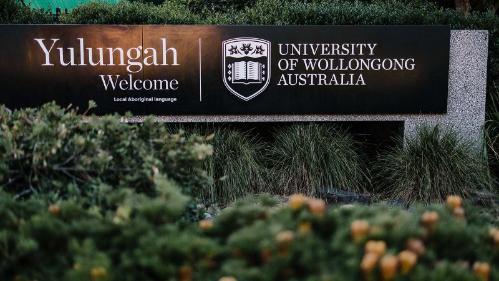In 2022, all NSW universities, bar the University of Sydney and the Australian Catholic University, lost money. The schools saw collective losses of over $400 million, with the University of Wollongong having a deficit of $28,400,000. Across the state, domestic enrolments are down and, for most schools, international enrolments have begun to increase, but have not returned to pre-pandemic levels. These enrolment declines paired with the increased operating costs of returning to on-campus learning have been blamed for much of the deficit. Waning domestic enrolments appear to be a trend across the country.
Associate Dean for the Faculty of Arts, Social Sciences and Humanities at the University of Wollongong, Kate Bowles, said she is aware of concerns regarding domestic student enrolment numbers.
“That has as much to do with what’s happening elsewhere in the economy,” Bowles said.
“Australian students and their families are aware that to take on a place at an Australian university is to take on debt, and so this is just a time when people are being a bit careful about that.”
Humanities subjects and courses are one area that has been declining in recent years, with majors like English and history having seen steep declines over the past decade. There isn’t a clear reason for this shift in engagement with the humanities, but the influence of technology is one potential issue pundits have discussed. The Sydney Morning Herald (SMH) presents arguments that suggest the way students utilise modern technology has caused them to have shorter attention spans and shift their preferences towards a more visual learning style.
Higher Education Academic at the Australian National University Andrew Norton was quoted in the SMH article and expanded his thoughts in a blog post several days later.
“English literature and history both involve time-consuming reading, which counts against them in the smart phone and social media era,” Norton said.
“Correlation is not causation, but increasing teenage use of smart phones matches with the early 2010s humanities decline.”
The Jobs-Ready Graduates reform introduced by the Morrison government in 2020 has also been considered a problem for subjects in the humanities. The reform resulted in increased fees for specific courses, including humanities, but did not impact others with higher employment demand. This year, the peak body for the tertiary education sector, Universities Australia, turned against the reform, arguing that it failed to push students into STEM courses and was always doomed.
Norton suggests that, while the reform did not trigger the decline in engagement with humanities, it may have exacerbated it.
“Somebody committed to a career choice is not rationally going to be deterred by higher student contributions,” Norton said.
“But someone studying arts principally out of interest may decide that $15,000 a year is too much.”
Bowles believes that potential humanity students may be weary of studying a course out of interest alone when uncertain about their career path.
“A humanities degree really is in fact professionally relevant but it’s not the same as doing accountancy because you want to be an accountant,” Bowles said.
“The more you have to pay for something the more you think about return on investment.
“Under those circumstances, people become more risk adverse, and the idea that something would simply be interesting feels more risky.”
The lack of engagement with some humanity courses has had a damaging impact on some schools already. The Australian Catholic University (ACU) in September announced plans to cut its medieval history and philosophy research departments, making dozens of humanity-based jobs redundant. The plan received backlash from academics.
In the light of the Jobs-Ready Graduates reform, questions have arisen regarding the role of universities going forward. The Vice-Chancellor at the University of Melbourne, Duncan Maskell, has suggested that the immediate issues the university sector faces cannot result in the reduction of the sector’s purpose. He argues that the sector must challenge skill shortages, low productivity, high inflation, and other immediate hurdles, but that it must, “above all else”, “[provide] an education: expanding minds, helping people understand and adapt to the world in which they function, instilling the ability to think rigorously and thus to interrogate arguments and evidence, fostering creativity and curiosity, and enabling people to be comfortable with critiques of their own views and to accept uncertainty about what they appear to know.”
The challenges that the sector must face in the future will be substantial. The use of AI programs like ChatGPT will continue to reshape the way students engage with learning and assessments. Several Deakin University professors are up for the challenge, arguing that the way students are assessed needs to evolve.
Bowles describes how teachers must compete with free, entertaining, online education and that, to her, the purpose of universities is to create an educated citizen.
“Really good universities will have the courage to have incredibly difficult conversations about the reality of what their supposed market wants and can already do,” Bowles said.
“We’re teaching people who know how to find information, but we might be teaching people who don’t know how to judge all of the information that they find.”
The university sector is a mess. Schools are facing huge deficits, enrolments are down, and faculties like the humanities need attention. Many immediate challenges must be addressed, and going forward, the future is uncertain. What is clear is that universities must hold tight to their responsibility as places of education and they must be prepared to evolve as necessary.


